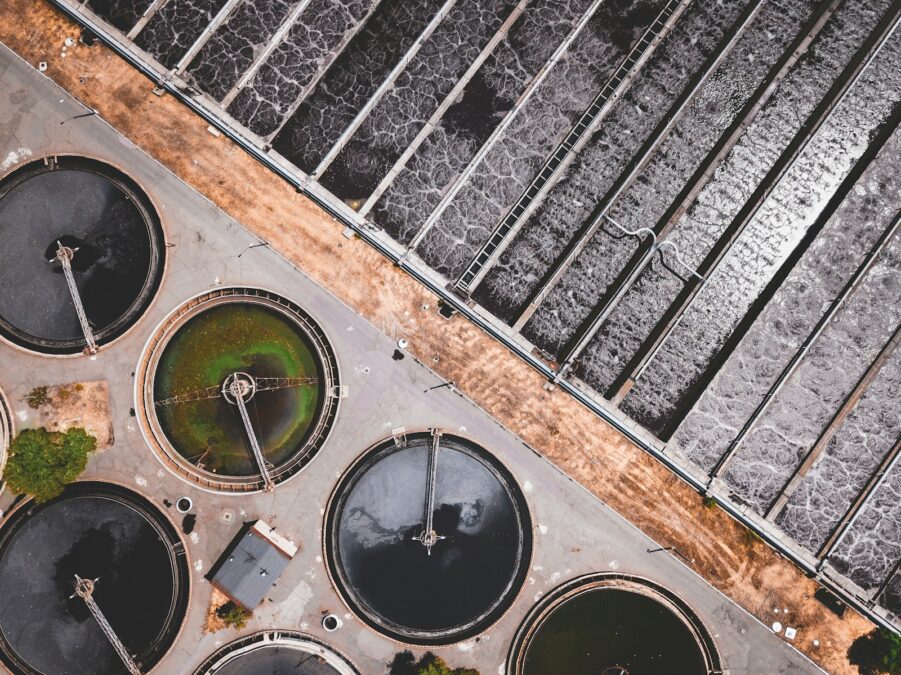Revolutionizing Water Conservation in Smart Cities
As cities like Dubai and Riyadh embrace the future, Smart Water Management Solutions are becoming critical in promoting sustainability and efficiency. This article examines how Internet of Things (IoT) technologies are transforming urban water management in these bustling metropolises.
IoT Integration in Urban Water Systems
Advancing Resource Management
The incorporation of IoT technologies into water management systems represents a significant innovation in urban planning. In cities such as Riyadh and Dubai, where water is a precious resource, IoT solutions offer a way to enhance efficiency and reduce waste. Sensors and smart meters collect real-time data on water use, pressure, and quality, allowing for immediate and precise adjustments to distribution systems. This data-driven approach helps in identifying leaks and losses promptly, ensuring optimal use of resources. Moreover, IoT technology facilitates the use of predictive maintenance strategies, reducing the likelihood of disruptive and expensive system failures, thereby supporting continuous improvement in public utilities management.
Boosting Water Efficiency Through Smart Analytics
Optimizing Usage with Data
Smart analytics are pivotal in maximizing water efficiency in Saudi Arabia and the UAE. By analyzing the vast amounts of data collected by IoT devices, municipalities can not only monitor but also predict water usage patterns throughout the year. This enables water authorities to manage supply more effectively, especially during peak demand periods or in times of drought. Furthermore, data insights assist in tailoring conservation campaigns to consumer behavior, significantly enhancing public engagement and effectiveness. Through intelligent analysis, cities can develop more resilient water systems that can withstand the challenges posed by climate change and population growth.
Enhancing Public Engagement and Awareness
Education and Involvement in Sustainability
Effective communication is key to successful water management strategies, particularly in regions experiencing rapid urban growth like Dubai and Riyadh. IoT technologies play a crucial role in enhancing public engagement by providing residents with access to their own water usage data via user-friendly apps. This not only helps individuals understand their consumption patterns but also encourages them to participate actively in conservation efforts. Educational programs supported by real-time data can dramatically increase awareness of water issues and promote sustainable practices. By involving the community, cities can foster a culture of conservation that supports long-term sustainability goals.
Strategic Water Reclamation and Recycling Initiatives
Sustaining Urban Growth with Innovative Technologies
In an effort to support sustainable urban development, cities like Riyadh and Dubai are implementing advanced water reclamation and recycling technologies. These initiatives are critical for maximizing the utility of every drop of water in these arid regions. By using sophisticated filtration and treatment systems, wastewater is converted into safe and usable water for various non-potable applications, including industrial processes and landscape irrigation. This not only helps in reducing the dependency on fresh water supplies but also promotes environmental stewardship. The strategic integration of these technologies into urban planning is a testament to the commitment of these cities to sustainable development and ecological conservation.
Collaborative Efforts in Regional Water Management
Partnerships for Enhanced Water Security
Saudi Arabia and the UAE are leading examples of how collaborative efforts can enhance water security and management efficiency. By partnering with technology companies and neighboring countries, these nations are pioneering regional water management initiatives. These partnerships facilitate the sharing of best practices, innovative technologies, and resources, ensuring a coordinated approach to water conservation across borders. Such collaborative frameworks are vital in regions characterized by water scarcity as they help in mitigating potential conflicts over resources, promoting peace, and ensuring sustainable growth for all involved stakeholders.
Future Prospects: AI and Machine Learning in Water Management
Leveraging Cutting-Edge Technologies for Enhanced Efficiency
Looking ahead, the integration of Artificial Intelligence (AI) and machine learning algorithms into water management systems holds promising potential for further enhancing efficiency and sustainability. These technologies can optimize water distribution, predict demand more accurately, and identify potential system inefficiencies before they become problematic. For instance, AI can be used to model water consumption trends and adjust policies or infrastructure accordingly. Such proactive measures could significantly improve the resilience of urban water systems against the growing challenges posed by climate change and urbanization, ensuring reliable water supply for future generations in cities like Dubai and Riyadh.
#SmartCities, #IoT, #WaterManagement, #Sustainability, #UrbanDevelopment, #Dubai, #Riyadh, #Technology, #Conservation, #Innovation

